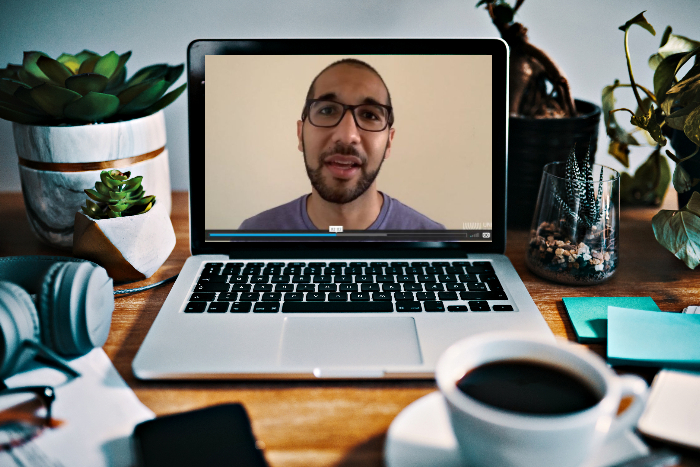
This moment represents a boiling point, the result of years upon years of systemic racism and oppressive forces that have marginalized, murdered, and destroyed the lives of Black and Brown souls.
Right now, our Reform Jewish community has been given a gift: The gift of the voices of three Reform Jews of Color – Evan Traylor, Deitra Reiser, and Yolanda Savage-Narva – can help us not only to process the trauma of the moment and ground us in the historical reality of racial oppression in the United States, but also to hold ourselves accountable for a call to change, repair, and disruption.
Guidelines for Conversations About Racial Justice
Here are some general guidelines for congregational and communal conversations after hearing the voices of Jews of Color who are part of our community.
- Don’t let white emotions dominate spaces: In "Dismantling Racism: A Workbook for Social Change Groups," authors Kenneth Jones and Tema Okun explain that often, dominant groups take up a lot of space to emote, intellectualize, and seek comfort. In the process, they can cause unintentional harm – even while trying to do the exact opposite. (Read about the phenomenon of “white tears” in multiracial settings.)
- Listen, sit with your discomfort, and take action: When given the gift of multiracial or cross-racial dialogue, white Jews can practice taking up less space and internalize the messages and calls to action that have been offered by Jews of Color. (See "Ways Your Congregation Can Act Now for Racial Justice" by Rabbi Jonah Dov Pesner).
- Process feelings in an affinity space: Affinity spaces allow Jews of Color to process and grieve and allows a space for white people to ask questions without causing further harm to people of Color. (Learn more about caucus and affinity groups.)
Discussion Questions
After you’ve watched videos from some of the Jews of Color who are part of our Reform Jewish community, here are some questions worth considering and discussing.
After watching Evan Traylor’s video, ask:
- What parts of this video resonated most with you?
- What would it mean for you to be, in Evan’s words, not just “not racist” but clearly antiracist?
- What would it look for you to be antiracist on an individual level?
- What about in you congregation and Jewish community?
- Consider your answer to the question above. What will you commit to doing in the next week/month/year to make that vision a reality?
After watching Deitra Reiser’s video, ask:
- What parts of this video resonated most with you?
- Have you taken the time to look at how racism lives within you? Within your Jewish community?
- Are you not just antiracist but pro-Black? What about pro-immigrant?
- Have you risked your comfort to be antiracist? Have you risked friendships? Other relationships?
- From this moment on, what will you risk to be both anti-racist and pro-Black? What are you willing to give up?
After watching Yolanda Savage-Narva’s video, ask:
- What parts of this video resonated most?
- What can you do to dismantle the systems of racism, hatred, and bigotry in our country?
- Yolanda asks us to change what this looks like three weeks from now. What can I do to change things three years from now?
Additional Resources
- "The Black Jews Are Tired" by C.E. Harrison
- "Mourning, Broken, Afraid: A Letter to My Friends" by Jessi Kingston
- "Ways Your Congregation Can Act Now for Racial Justice" by Rabbi Jonah Dov Pesner
Speaker Bios
-
Evan Traylor is a rabbinical student at Hebrew Union College-Jewish Institute of Religion (’25). Originally from Oklahoma City, he graduated from the University of Kansas studying political science, Jewish studies, and leadership studies. Prior to rabbinical school, Evan worked at the Union for Reform Judaism creating new projects and initiatives in college and young adult engagement. He serves on the leadership teams of Jewish Social Justice Roundtable and Jews United for Justice, and is a proud alum of University of Kansas Hillel, URJ Kutz Camp, and URJ Greene Family Camp. He also served as North American President of NFTY – The Reform Jewish Youth Movement.
-
Deitra Reiser is the co-chair of the Multiracial Sinai Committee at Temple Sinai in Washington, D.C. She was drawn to working at the intersection of race and Judaism as a Jew of Color and a mother. After co-leading a study group on white privilege, Deitra collaboratively wrote a study curriculum designed to give congregants tools to explore their own racial identity with the goal of becoming antiracist in a Jewish context. She holds a doctorate in educational psychology from The University of Wisconsin-Madison.
- Yolanda Savage-Narva has devoted her professional career to helping people live their best and most healthy lives. Her work includes collaborating with Tribal governments to promote public health; promoting pedestrian safety; and advocating for and advancing health equity. Yolanda is director of Racial Equity, Diversity, and Inclusion for the Union for Reform Judaism and the former executive director of Operation Understanding DC, a nonprofit organization dedicated to promoting understanding, cooperation, and respect while fighting to eradicate racism, antisemitism, and all forms of discrimination.
Visit the Religious Action Center of Reform Judaism's racial justice page for additional resources.
